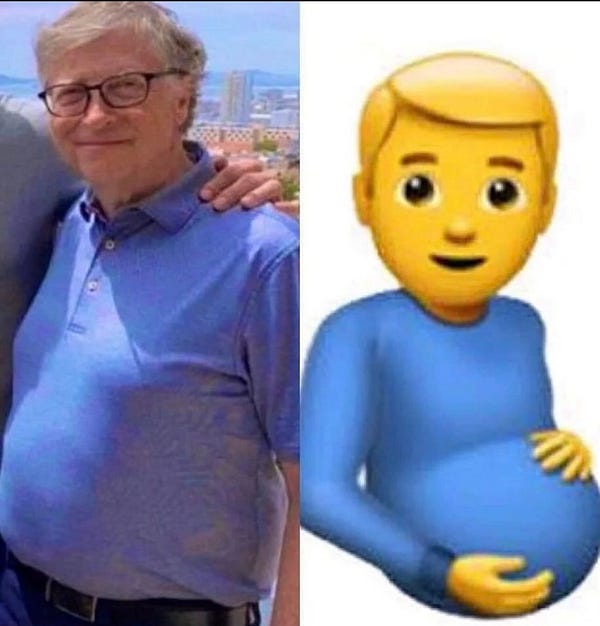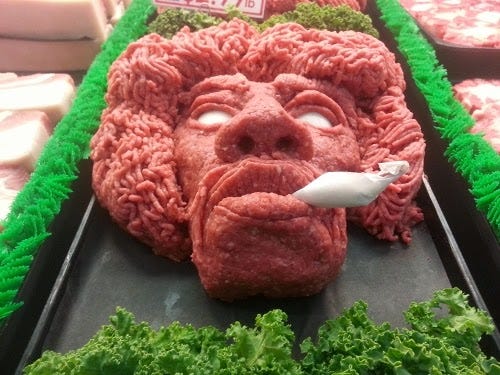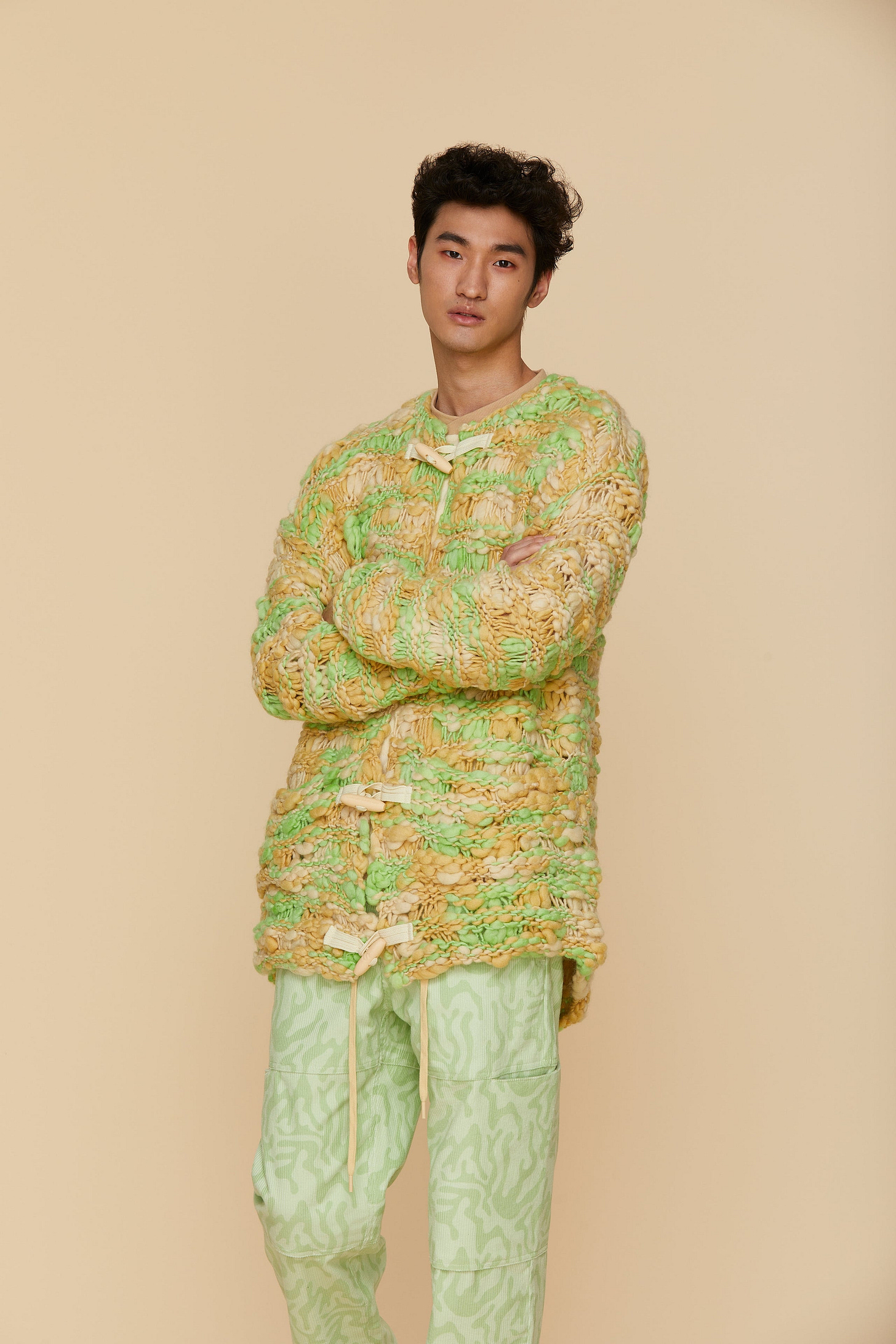The Internet Meat Grinder
Inside the machine, the most entertaining outcome is probably the most likely.
Welcome to People vs Algorithms 28.
I look for patterns in media, business and culture. My POV is informed by 30 years of leadership in media and advertising businesses, most recently as global President of Hearst Magazines, one of the largest publishers in the world.
Note: I decided to move the send to Friday. Brian Morrissey moved to Thursday and that’s too much goodness for one day. Let’s see how it goes.
Get my free weekly email here:
A meat grinder came to mind as I struggled to find an appropriate metaphor to share my thoughts on media this week.
Piece by piece, every bit of the media carcass gets tossed into the internet meat grinder. Media types blend with communication like fat, protein and gristle. Entertainment flavors the news. Commerce and commerce twist together and ooze out in pink spirals. Real people become make-believe. Make-believe becomes real. Long-term distribution advantages, the kind that created fat profits and structural stability (and downstream privilege, glamor and media royalty) slowly disappear. Politics? Throw that in too because media and culture are weaponized inside the meat grinder. Like when a family entertainment company unwittingly goes to war with a opportunistic governor over family values.
The experience of the machine is a little disorienting. I don’t know Ryan, but it probably feels something like this:

In the meat grinder, old media organizational constructs die. Efforts to enforce structure around media dissolve into a endless consumer-driven feed of hunt, peck, contort and share. Inside of the machine, people become the important new nodes, their notifications are bird calls for attention.
Now there’s plenty to go into the grinder. A few observations from my week inside.
The Met Gala’s fading glory
Dressing celebrities influencers up in uncomfortable clothes and parading them in front the internets to be scrutinized and memed is actually the opposite of glamor. Maybe it’s a welcome break from a world in conflict. While everything about that event feels deeply anachronistic, the ingestion of empty celebrity nothingness performs an important function in internet meat grinder — it’s the raw meat. Still, I am grateful to Richard Rushfield at The Ankler for calling it as it is:
This year without so much as a nod to the moment, the Met Gala arrived at a time of war, social disruption, immense hardship all around, and a basic social fabric about to go up in flames. As nerves are strained to the breaking point, the elites once again seem to want to send a message that, it’s not their f-ing problem. Charles Dickens or Christopher Nolan could not have done any better than Anna Wintour in a literal — not figurative — tiara and adorned in the feathers of countless birds unwillingly flocked together as news broke of the increasingly likely Supreme Court's Roe vs. Wade reversal. That juxtaposition will go down in the history books.
The most entertaining outcome…
The meat grinder also has a strange way of blending reality with fiction. I’ve been perplexed by this for a while and decided it was just the unfortunate consequence of the virtualization of everything. Inside of our digitally mediated worlds, truth is seemingly fungible. As Steve Bannon advised Trump, if you flood the zone with enough bullshit, no one knows the difference between truth and fiction.
A tweet from Sriram Krishnan stood out to me this week as a plausible explanation for many things these days, and a good way to understand how Elon thinks about Twitter. “The most entertaining outcome is the most likely,” was Elon’s Twitter response to why Doge Coin might actually be worth something. Elon likes dogs and he likes memes! This idea should come as no surprise to someone in say, the entertainment business, but is still confounding to people that expect rationality from leaders in business and politics.
I truly believe this is lost on most people and corporations. Social media is still media. Media runs on attention. Attention demands things that break convention. If you have the courage and are clever enough to throw yourself at the meat grinder and not care about the consequences, you might just turn your brand into a media brand. Nobody cares about your press release. But everyone thinks it’s funny / notable / disgraceful when you Tweet that Bill Gates is gonna make you soft. Then it makes its way to CNN and CNBC.
To succeed you must have thick skin. It helps if you have institutional and financial independence. You cannot be worried about backlash. If you do lean in, you might become fictionalized and meme-able. You have the potential to become wildly influential. And, if you mix entertainment mindshare with real world power, financial or political, it's a potent combination.
Years ago, a time of more structure and decorum in institutional meda, we would have seen this kind of behavior as positively bonkers. Trump normalized it. Our expectations have to be fundamentally reset.
If you do win the game, the media math is endlessly valuable. And the rush, addictive.
Inside the grinder, it's hard to tell the ribeye from chuck steak
What is premium media anymore? For the record, I’ve never seen a media pitch that did not include some claim to premium media status. It used to be the case that more money spent making media meant a higher quality product and a more sophisticated and valuable audience. It may be true that you still spend to create a better product but increasingly that product sits alongside things that might deliver just as much media value at a fraction of the cost to make.
Social media is the perfect case study here. 15 years ago, no one thought it would ever be a viable advertising medium. But times changed and a deep trove of audience data shifted premiums from the content to the audience.
Today the amount spent making the media has absolutely no bearing on its value in the meat grinder. Take Wordle. Millions of people play everyday. The cost to generate that engagement is basically zero. Whoever bought Wordle for the New York Times deserves the acquisition of the year award.
Or, take this amazing animation below. It’s mesmerizing, hilarious and totally useless. Why does it work and where did it come from? Who knows. All I know is it is one of a billion things that zoom around the socials competing with Netflix with de minimis production cost.
TikTok is the addictive new homepage for a billion people in the grinder. So is Roblox. Yes, sometimes people just want to sit back and be entertained, they love media brands and services that make this possible. But the next gen want to play with their media. This makes life more complicated for media companies in the meat grinder. An article on Time suggested as much this week:
If there is a reckoning coming, it’s because all emerging data suggests millennials and Gen Z are not only less interested in streaming TV and film than the previous generation, they are also consuming more content on YouTube and TikTok.
In the meat grinder fan fiction meets Judge Judy. I mean, I think Johnny Depp has become decidedly less sexy and should become an ad for “just say know to too much red wine and cocaine.” But for many fans, Depp is a treasured fixture in the nostalgia, pop culture memory bank and that matters more than truth or justice. Per the New York Times, “the defamation trial between Mr. Depp and Amber Heard is a case study in what happens when complex claims are filtered through the lenses of extreme fandom and social media.”
In the meat grinder, truth and fiction mix in the same patty. For those of you that remember OJ, it’s like that but now fans readily create their own alternate realities online. This is not just about a celebrity court case. It’s about how people contort media as fantasy and how it, in turn, shapes life in the real world.


Websites go in, pages come out…
I don’t want to pick on CNET but they showed up this week and their rebrand and redesign got me thinking about the anachronism that is the website. It is not that web pages are not valuable and useful things, it’s just that the idea of a site, the structure of homepages, section pages and web navigation devices is just not the way we do this anymore. But we so badly want to own our own corner of the internet, we pretend they matter.
CNET debuted a spacey new logo that animates in a spacey style, like 3D animation from the 90’s. Kinda cool. The tag line shows a grander aspiration for the brand, “Your Guide to a Better Future.” I want a better future too, but I was struggling to figure out how CNET is going to offer me that or why I would look to them to get it. I realize that a better future is just a tagline but no one ever got on the internet or went to a website searching for a better future. More likely… let’s find a good deal on a huge TV so I can ignore the insane present and pass time in anticipation of a better future.
But here’s the bigger homepage point, one that applies to CNET and most other homepages. I stopped counting at 100 links on the page, under banners like “Trending”, “Living Life Better”, “Deep Dives”, “Power Money Moves”, “Explore More” and “Daily Recommendations”. Who on the planet ever navigates anything this way in the modern world. I would have far preferred a search box and three of four links on the page:
Link 1: (with big image): “This is a good one, read it. Trust us.”
Link 2: “Of all the content we made yesterday to feed to the search gods, people loved this one.”
Link 3: “Our deep expert in the area you care deeply about just said something useful and important.”
Link 4: “Our cookie sniffer is often right and we suspect you need a new TV. Here’s a useful guide to finding the one for you.”
In addition, I might add a random daily deal generator button with a fun animation. Next to the search box, a few other helpful links would direct me much like simple, friendly navigational signs at Best Buy… for phones go here, printers here, etc.
This is about niche, niche, niche interests. When you pull it away from narrow passion and make it feel like bland, old school media, you lose everything.
Good homepages are just pages now. The best don’t try to recreate a time when media was structured from the top down. They give the user what they need or get out of the way.
I understand that I sound slightly sarcastic, but the homepage is dead. We desperately want the web construct to persist but the truth is it is just a brochure for the brand that nobody uses except maybe a few old people and media buyers in brief drive buys to confirm or deny a media buying bias.
Social media has completely trained us to consume feeds — a long list of images and text, instantly scannable, presented by smart algorithms, automatically curated by past behaviors and friend connections that spit out unacknowledged preferences.
A new generation of media companies are trying to shape the meat.
Inside of the meat grinder the true north is obviously the ninja consumer — any attempt to strongarm behavior into neat boxes is futile. We do it for advertisers, but this is mostly sleight of hand. Which is why superficial designs on homepages and section pages persist.
Search is the spinal cord. It has been for a while. Algorithmic-driven feeds are too. Increasingly, people are the navigational anchors that hold navigation together. Sometimes brands can be substituted for people, but increasingly people come first. Which means the organizing construct of the internet significantly advantages platforms that organize people, and gives them tools to create and manage worlds.
The meat grinder advantages advertising that is performance driven because with performance all that matters is if it works or not. All the superficial stuff evaporates. This is increasingly how all digital media works. But you know this already.
A new generation of media companies and new-fangled ad networks are coming to terms with this challenge — how to harness and grow the important new creator nodes of the media world, connect them to brands and deliver ad solutions around them.
This week I was chatting to Brian Hanley, CEO of Bullish. Brian has been assembling a group of fin-fluencers, helping them improve their media products and bringing a brand / performance product to the media community. People like Litquidity and their daily newsletter product, ExecSum. While this creator centric model suffers from a herding sheep challenge, it strikes me this is really where the action is in the next generation of ad products on the internet if you can walk the tightrope between what brands need today and what creators need long term. Not easy.
As a quick aside, inside the meat grinder the world of finance has never been so closely connected to culture. This is not the same as it ever was. Finance used to be boring. Now it’s like a gaming interface to your online world and tightly connected to culture via your crypto wallet and NFTs.
Advertising will always be good filler.
Then there is video in the grinder. Video organizes content against a timeline and has therefore always been the most natural place for orderly advertising delivery. The meat grinder has made a mess of this world, and now everybody is scrambling to put the pieces back together. If Netflix’s trouble points to anything, it’s how important revenue diversification is the media meat grinder. Apple has it, so does Amazon. Warner / Discovery has it too. Disney definitely does. Netflix does not. While it troubles me deeply that I will ever have to watch ads on Netflix, it now seems inevitable.
The challenge will be how content will have to be refactored to make a place for it. It will take a long time to evolve the organization to make the advertising business function. If you have ever worked in a media company you will know that selling ads is a long way from just “turning on ads” — it’s product and people, it’s cultural, and it really is a business in an of itself. This is a big shift. While 200M subs makes Netflix a tempting acquisition target and it may be fun to speculate on a Apple or Amazon moving in, they don’t need Netflix to steal share. The more likely scenario would see Netflix acquire someone like Roku that has spent the past few years building an advertising competency.
Interestingly, its revealing to watch this week’s New Fronts to witness in real time how an the ad supported TV industry is metamorphosing around the cable box. An entirely new cast of companies, YouTube, Roku, Samsung, Tubi, Vizio, Fubo, TikTok, etc, driven by new software and hardware consumer touchpoints are refactoring how ad supported video comes to market.
The lesson is always… advertising is like a cockroach. You can avoid for a while but if you leave the food out, eventually it will find its way back in.
Two other quick points to leave you with. Live and scheduled are the only cuts that avoid the grinder. This is where you will always find premiums. It seems to be coming increasingly clear that the Netflix “drop” model might have made consumers briefly happy but made it even harder for the company to exercise any control inside the grinder. And it had the added effect of pulling shows out a protracted cultural conversation that might follow a weekly distribution model.
We are tiring of the metaphor. Let’s wrap this up. You might be asking “Meat grinder... Silly. So what?”
Our media ecosystem can leave media companies feeling desperately out of control, wondering how they will every find predictability in a chaotic new world.
I would submit that a few things matter now. Big media companies with jostle through a multi-year M&A process to find control through scale in an effort to take back the content navigation interface. Consumers will win for a while and then the world will start to look like the old cable world. Irresistibly magnetic IP that fans can reshape and make their own will always win. Efficient cost structures, driven by efficient production, low-cost consumer creation and gaming will make economics much more difficult for everyone. Everybody talks about creators because the tools are making anything possible at the smallest unit of creation. Enterprising, wildly entertaining passionate people with opinions have an advantage in the grinder.
It’s BBQ season. Throw a couple of patties on the grill.
Have a great weekend…/ Troy
Subscribe now. It’s free:
More grist:
1. Amazing that a money app / payments company can make clothing like this. Good on you Block.
2. Also… will the NYT stop at nothing to discredit Musk. If you grew up in a racist place, does it make you a racist… Oi.
3. 2022 World Changing Idea Awards. From Fast Company. Needed optimism.
4. More optimism. Hungry, plastic eating microbes.
5. The future of lawn mowing. Or why a good product video says it all.
6. Great multimedia storytelling from NYT. “Inside the Apocalyptic Worldview of ‘Tucker Carlson Tonight’”
7. Steve Jobs is still the boss. I had not seen this. Loved it. Thank you Eric.
From the 1995 interview:
The web is incredibly exciting because it is the fulfillment of a lot of our dreams; that the computer would ultimately not be… a device for computation, but …a device for communication. And with the web, that’s finally happening. And secondly, it’s exciting because Microsoft doesn’t own it and therefore there’s a tremendous amount of innovation happening. …I think that the web is going to be profound in what it does to our society.
8. And here’s Jeff Bezos doing a remarkable job of describing the future at Ted in 2003. The analogies to the electric industry and horizontal enabling layers ar insightful. Worth watching.
Born as a primetime satire of Middle America, The Simpsons has become something else: the inspiration for all kinds of high art, from the runways of Balenciaga to the canvases of KAWS. GQ goes inside the minds of the show’s creators—and gets a rare interview with Matt Groening—to explore our most influential sitcom’s enduring power.
10. Every electric vehicle in US, From Visual Capitalist:
And... Everybody…move your feet.













